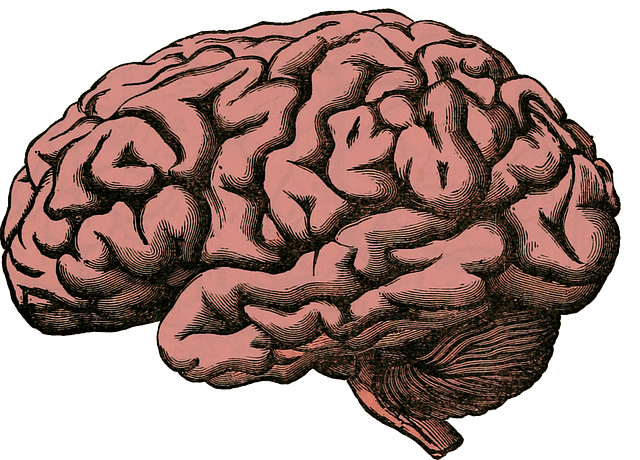Children affected by domestic violence require specialized therapy, such as the RFM (Resilience, Fitness, Mindfulness) approach, which combines mental wellness coaching, physical activity, and mindfulness. This holistic method builds resilience, enhances coping mechanisms, and improves emotional well-being through targeted exercises, community outreach, and risk assessment tailored to each child's needs. The RFM model is proven effective in helping children process trauma, manage emotions, and develop lifelong coping strategies, ultimately fostering stability and positive mindsets.
“Unraveling the power of RFM (Resilience, Flexibility, and Mastery) as a transformative tool for children affected by domestic violence, this article delves into its profound impact on their healing journey. We explore how resilience-building exercises within therapy can address emotional needs stemming from trauma. From understanding the RFM framework to practical implementation strategies in clinical settings, this guide offers insights into a game-changing approach to support vulnerable youth. Discover success stories that highlight the lasting effects of these exercises, providing hope and inspiration for effective therapy in domestic violence cases.”
- Understanding RFM and Its Impact on Children Affected by Domestic Violence
- The Role of Resilience Building Exercises in Therapy
- Identifying and Addressing Emotional Needs Through RFM
- Practical Strategies for Implementing RFM in a Therapeutic Setting
- Success Stories: How RFM and Resilience Exercises Transform Lives
Understanding RFM and Its Impact on Children Affected by Domestic Violence

Children exposed to domestic violence can suffer significant emotional and psychological impacts, which often require specialized support to navigate and overcome. Here’s where RFM (Resilience, Fitness, and Mindfulness) steps in as a powerful tool for therapy. By focusing on these key areas, RFM aims to strengthen children’s mental wellness coaching programs, helping them develop resilience, enhance their coping mechanisms, and foster a sense of stability.
This approach is particularly beneficial in addressing the unique challenges faced by kids affected by domestic violence. Through various exercises that promote mindfulness practices and encourage physical activity, RFM helps children process trauma, reduce stress, and build emotional strength. By integrating these strategies into their lives, young individuals can learn to manage intense emotions, prevent burnout, and cultivate a positive mindset—all essential components of mind over matter principles.
The Role of Resilience Building Exercises in Therapy

Resilience-building exercises play a pivotal role in therapy, especially when addressing complex issues like domestic violence. These strategies are designed to help individuals, particularly children, navigate and overcome traumatic experiences. Through various activities, clients learn to manage their emotions, build coping mechanisms, and develop a sense of safety. Therapists can incorporate empathy-building strategies into these exercises, fostering an environment where children feel understood and supported. This not only enhances their mental wellness but also encourages them to express their feelings and thoughts openly.
In the context of therapy for children exposed to domestic violence, resilience exercises offer a safe space to process and release emotions. The Mental Wellness Podcast Series Production highlights successful initiatives where professionals use creative approaches to engage young clients. By integrating these exercises into treatment plans, therapists can significantly improve risk management, ensuring the well-being of both current and future patients. This holistic approach ensures that individuals affected by domestic violence gain the necessary tools to build resilience and lead fulfilling lives.
Identifying and Addressing Emotional Needs Through RFM

Children exposed to domestic violence often struggle with unmet emotional needs that can significantly impact their resilience. The Resource, Strengths, and Needs (RFM) model offers a powerful tool to identify and address these hidden wounds. By assessing a child’s resources, strengths, and needs, therapists can tailor interventions to support their emotional healing processes. This targeted approach ensures that children receive the necessary support to build resilience and cope with trauma.
Implementing community outreach programs focused on mental health policy analysis and advocacy is crucial in expanding access to therapy for children affected by domestic violence. These initiatives not only raise awareness but also promote resources and services tailored to address the unique needs of this vulnerable population. Through collaborative efforts, communities can foster a supportive environment that prioritizes emotional healing and helps children develop the strength to overcome adversity.
Practical Strategies for Implementing RFM in a Therapeutic Setting

Implementing RFM (Resilience, Strengths, and Mastery) in a therapeutic setting offers powerful tools for helping children traumatized by domestic violence. Mental health professionals can integrate these strategies into their practice to enhance resilience and promote healing. One practical approach is to start with a comprehensive risk assessment tailored for each child’s unique experiences and needs. This initial step allows therapists to identify potential risks and strengths, guiding the creation of personalized treatment plans.
By focusing on building self-esteem and emotional regulation skills, RFM exercises can empower children to cope effectively with trauma. Encouraging mastery experiences through gradual exposure to safe environments helps them regain a sense of control. Therapists can facilitate this by designing activities that challenge children to face their fears in supportive settings, fostering a positive cycle of growth and resilience. These strategies not only support the child’s immediate therapeutic needs but also equip them with lifelong coping mechanisms for stress and adversity.
Success Stories: How RFM and Resilience Exercises Transform Lives

Many lives have been transformed through the power of RFM (Resilience, Flexibility, and Mastery) exercises and therapy for children exposed to domestic violence. These innovative approaches are becoming increasingly recognized as game-changers in mental health awareness and emotional regulation. Success stories abound, with children who once struggled with trauma now showcasing remarkable resilience and adaptability.
One such example is a community outreach program implementation that targets at-risk youth. By incorporating RFM techniques into their weekly sessions, counselors have witnessed significant improvements in participants’ ability to cope with stress and challenging situations. These exercises help children process their emotions, fostering better emotional regulation skills. The positive impact extends beyond the individuals; it creates a ripple effect within the community, breaking down cycles of violence and promoting healthier family dynamics.
Resilience, fostered through RFM and tailored resilience-building exercises, offers a powerful therapy for children affected by domestic violence. By addressing emotional needs and providing practical strategies, professionals can significantly enhance these children’s ability to cope and thrive. Success stories highlight the transformative potential of RFM, demonstrating its game-changing impact on healing and personal growth in the face of adversity. Incorporating RFM into therapeutic settings is a vital step towards equipping vulnerable children with the tools they need to navigate trauma and build a brighter future.














